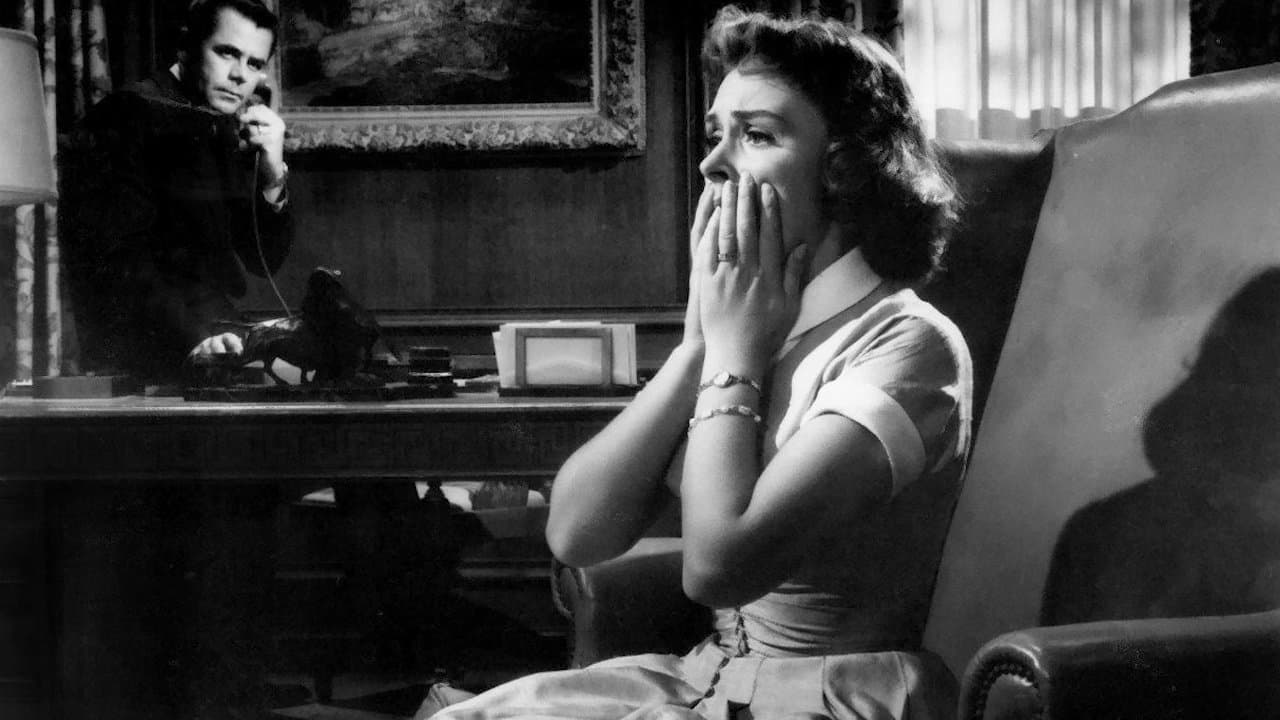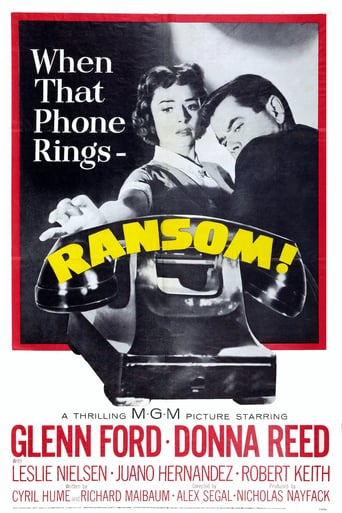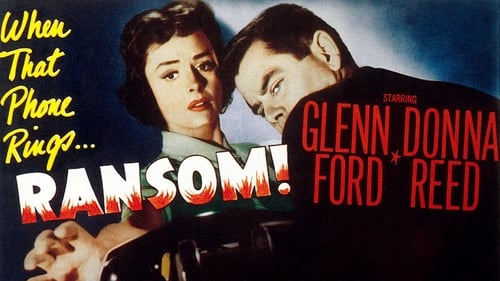


Love classic film and crime dramas/mysteries even more so. The more than capable cast further added to the interest (Glenn Ford and Donna Reed are always watchable and wanted to see how Leslie Nielson would fare in a very early dramatic role) and the idea was a great one with plenty of room for tension.'Ransom!' turned out to be a nifty and well above average film. It had room for improvement, on the other hand the good things were numerous and enormous. The Mel Gibson film may be better known, but like many others (although that film was quite well done and particularly worth watching for Gary Sinise), there there is a personal preference for the darker, more mysterious and more suspenseful yet not as flashy and more staid perhaps 1956 film, which today is criminally undervalued and generally has more substance.Is 'Ransom!' without faults? No. Donna Reed tries her best but the character is underdeveloped and lacks subtlety, causing Reed to overdo the hysteria especially. Occasionally it's a bit static.Plus it would have been even better if the villains were not as thinly sketched, though that they remained unseen did provide a mysterious edge, and the ending (although slightly touching and thankfully not improbable) less anti-climactic, overwrought and lacking resolve.However, 'Ransom!' is particularly worth seeing for Glenn Ford who gives a superb performance, very deeply felt, suitably stern and often restrained. Juano Hernandez is a sympathetic and heartfelt moral compass (the subplot gave the film heart), while Robert Keith and Juanita Moore are good support. Leslie Nielson fares well in a dramatic early role though he did go on to better things. The villains could have had more meat to them but they do provide some menace and there is a good amount of tension where one cares for the situation (helped by that the lead character here is better fleshed out), something that Gibson's version didn't quite have.The story is more deliberate, but there is a real air of suspense and dread without any gratuity or overblown action to cheapen it. It is also generally far more plausible, whereas Gibson's version unravelled in that aspect near the end. The script is taut, lean and thoughtful while the film is competently if not always imaginatively directed. 'Ransom!' looks suitably atmospheric and is very nicely shot.Overall, good and well done film if not without things that could have done with some tweaking. 7/10 Bethany Cox
... View More"Ransom" is based on a true story and was remade in 1996 starring Mel Gibson, but with somewhat different scripts.This 1956 film stars Glenn Ford, Donna Reed, Leslie Nielsen, and Juano Hernandez - one of my favorite actors, who has given my fine performances in many films.As in the true story, Ford plays Dave Stannard, a wealthy businessman whose child is taken from school by a nurse in uniform for reasons having to do with lab tests. This dates the film immediately, as no such thing would ever be permitted today.The parents (Ford and Reed) realize the boy has been kidnapped when he doesn't come home from school. Then they get a call from the school, and then they verify that the doctor didn't send a nurse for their son. They involve the police and eventually, they receive a ransom demand.After discussing the situation with the police, Stannard appears on his company-sponsored television show with a message from the kidnappers.This is such a powerful film - suspenseful, heart-wrenching, and one that brought me to tears, particularly in the scene where Stannard breaks down and Jesse (Hernandez) prays with him. I also found the end extremely moving.Glenn Ford and Donna Reed both gave tremendous, sympathetic performances, with Ford probably giving the best performance of his career as the anguished father. I've always liked him but I never think of him as having much range. He certainly is out of his comfort zone here.I remember liking the Mel Gibson film -- the father had the same toughness, though it was more overt. Ford displayed an inner strength rather than out and out aggression.Highly recommended.
... View MoreRansom is emblematic of the little, B&W films of the 50s that made up for their low budgets with high mindedness. In a similar context, it reminds me of Twelve Angry Men, made the following year. Both films expanded a profound human dilemma (how to resolve a kidnapping in one case, how to judge the guilt or innocence of a man regardless of popular consensus in another) into a cinematic drama that leaves a greater imprint on your mind than the slam-boom special-effect films of today can possibly accomplish. You leave the theater (or your home TV) thinking over and over, "What would I have done if I were in that situation?" Because of the kiddie-market mentality of modern film producers and the international demand for plots that are high in action and low in thought content, we will never see films of this kind being produced again (at least not by the majors). Savor this film and others like it.
... View MoreWhile I enjoyed the Mel Gibson remake of this picture and was pleased to see him in a serious role where he could display his acting chops, I thought the whole idea was a little divorced from reality, although it made perfect sense at that time as it must have seemed forty years earlier. The notion of a kidnapping victim's family refusing to pay any ransom and using it instead as a tool to convince the perpetrators to turn the boy loose sounds logical enough, but in real life such an act would bring such universal condemnation upon the father in a real-life scenario that no one has ever considered doing it for real. Part of the reason is that so few children are snatched for money, but usually for other more nefarious reasons by mentally warped individuals who generally work alone and don't confide their plans to friends and associates, making such threats to kidnappers at best useless or at worst counterproductive. Because the villain was evident in the Ron Howard remake, the story had to take a turn whereby the father would have to confront the kidnapper one on one. In this original, the snatchers are virtually unseen, so all the drama rests with the victimized family and how they interact with those who come to their aid or to view the spectacle. As such, it gives the principals, Ford and Reed, the chance to emote and they perform very well. Donna Reed was an unusually gifted actress as her Oscar win and Emmy nominations attest and Glenn Ford was an underrated actor in his day, probably best known by younger generations as Superman's adopting father in the final stages of his career. Sad to say, there's very little suspense in the narrative, and one wonders how great directors like Hitchcock, Zinneman or Kazan might have turned this into a great film. If you've only seen the newer version of the two films, take the time to watch the original. Some of the acting is exceptionally good, and it's mostly a well-crafted film. If nothing else, it's interesting to see how different generations of filmmakers can put totally differing spins on essentially the same story. Dale Roloff
... View More